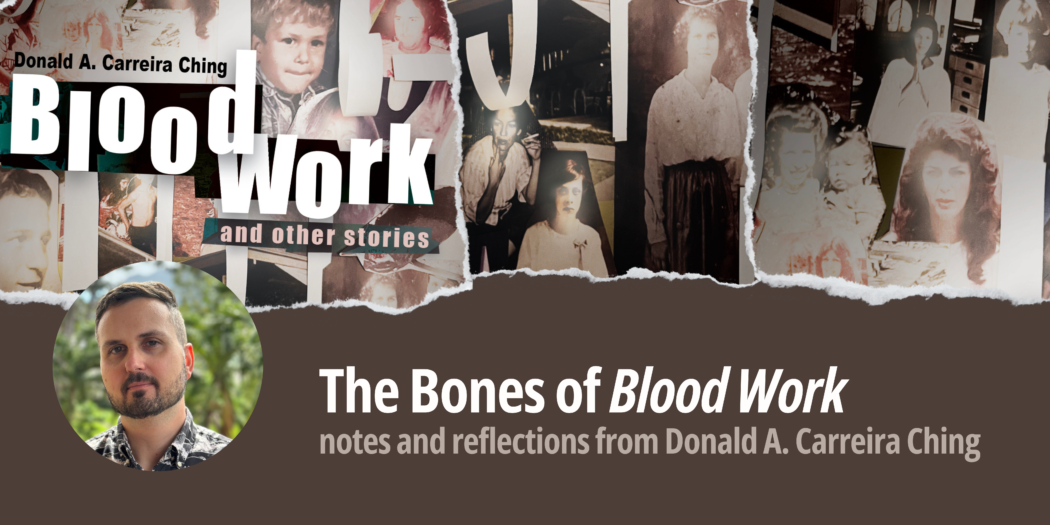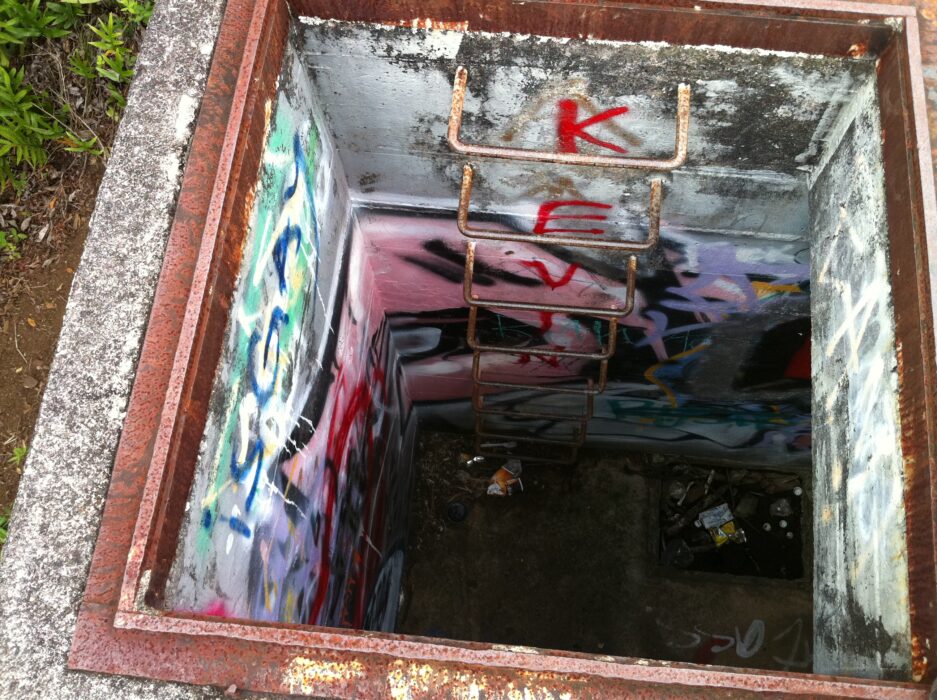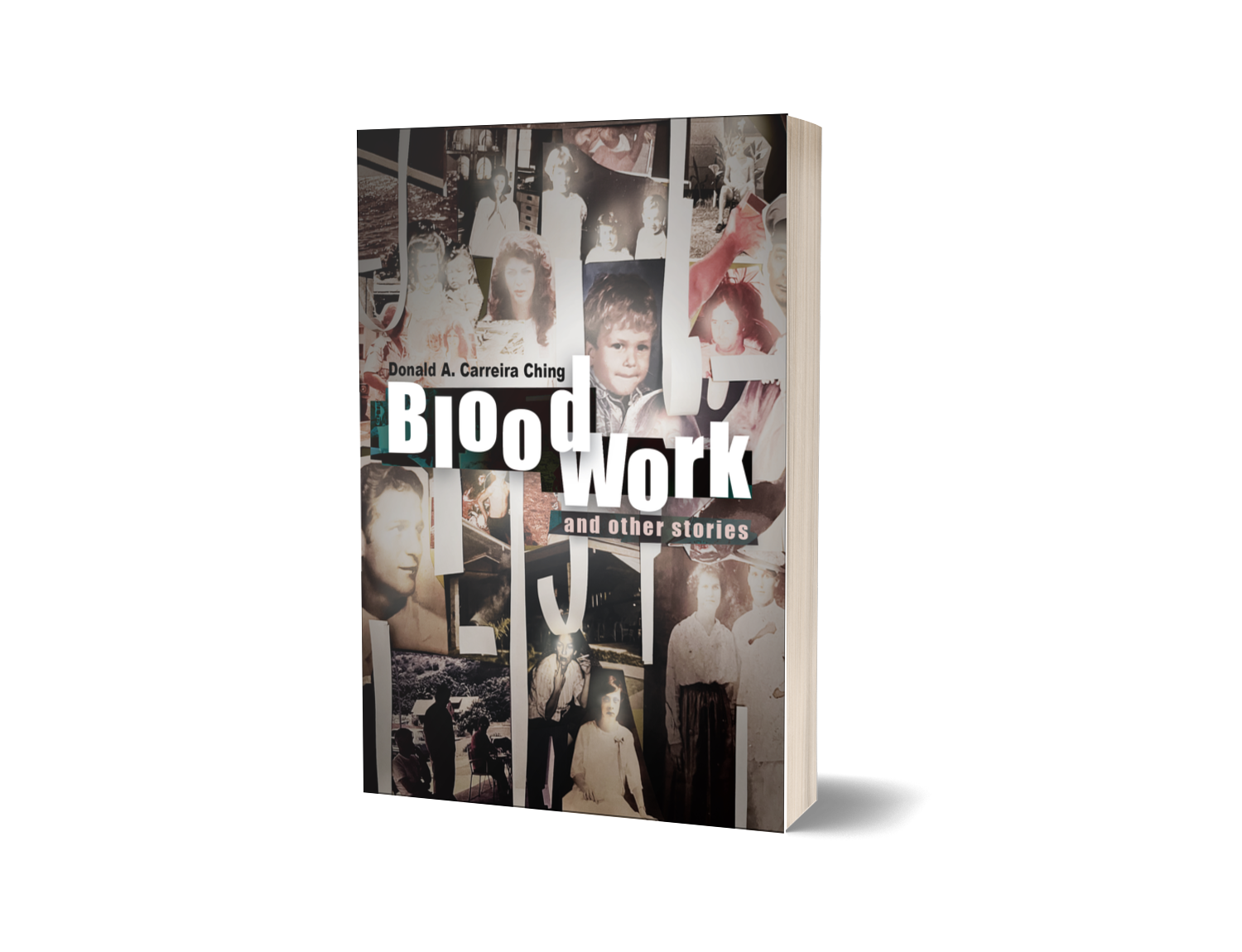We’ve got an exciting new digital series for you all: The Bones of Blood Work. For the next several weeks, Donald A. Carreira Ching will be sharing his own notes and reflections on each of the 17 stories in his new collection, which launches this summer. In this first edition, Donald dives into the first story of the collection: “Search the Waters.”

The Bones of “Search the Waters”
They said it would be years, and then the storms hit, the tsunamis came, and the seawalls fell. Māmala Bay swallowed Waikīkī and met the Ala Wai, and a million dollars couldn’t buy you a breath on Ala Moana Boulevard.
Blood Work opens with “Search the Waters.” It’s a near-future story set in the wake of several devasting storms that have left Waikīkī underwater. Character is always at the core of my stories, and in this one, it’s all about a father’s love for his daughter, and his struggle to make things right at all costs.
It was inspired by a Civil Beat article on sea-level rise and was initially written for the University of Hawaiʻi e-magazine, Vice-Versa (the original version was published there in 2019 and republished several times after, including in Snaring New Suns from Bamboo Ridge Press and Honolulu Stories Today from Mutual Publishing). It was also inspired by stories I read about the aftermath and devastation of Hurricane Katrina.
Most of the stories in the collection are set on the Windward side of Oʻahu, and this one does begin there, with Kaʻimi, the main character (inspired by my father-in-law, a boat captain and retired firefighter), climbing the Puʻu Maʻeliʻeli trail in search of a boat so that he can join the rescue efforts, but other than the opening, the rest of the story is set in the streets-turned-canals of Waikīkī.

Photo credit: Donald Carreira Ching. The pillbox at Puʻu Maʻeliʻeli
The story is heartbreaking, but it also speaks to the ways that people in Hawaiʻi adapt, survive, and weather the storm together.
Starting the collection in this way, I wanted to let readers know: you won’t be getting Michener’s Hawaii or The White Lotus with this book. These are not those kinds of stories. And with Waikīkī being the tourist symbol it is, it felt appropriate to use that setting to knock those expectations down and start to talk about the realities of life in contemporary Hawaiʻi.
The story is heartbreaking, but it also speaks to the ways that people in Hawaiʻi adapt, survive, and weather the storm together. A theme that runs through many of the stories in Blood Work.
Although “Search” has been published before, this version has been revised and made new, with the most significant revision being the story’s ending. If you’ve read it before, the changes make it well worth a return to the waters. If you haven’t, I can’t wait for you to read it and to hear what you think.
~ Donald



Talk story